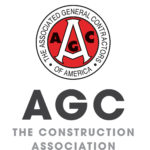In 1963, the Association established the Western Pennsylvania Heavy and Highway Construction Industry Advancement Program Fund, known today as H2AP, which allowed the Association to expand its services to the industry to such areas as manpower training, education, apprenticeship, and market development. The fund also provided the capital necessary to obtain additional manpower to staff the program. In ensuing years, H2AP activities grew well beyond the scope its founders had visualized, and soon included the establishment of the first craft training centers in the area. In the early days, the Unions utilized the Association’s office on Banksville Road to train individuals for varying job classifications that were in demand by contractors.
Legislative
Providing a voice for its members has been an important function of the Constructors Association since its founding. CAWP and H2AP have played major roles in influencing the adoption or rejection of various types of legislation affecting the industry at all levels of government. With the cooperation of the crafts with whom the Association has agreements, significant contributions have been made to efforts to obtain highway funding.
Safety
From its founding, job safety has been a matter of intense concern to the Association. Established in 1936, the Safety Committee immediately developed a close working relationship with the Western Pennsylvania Safety Council to promote greater safety consciousness and to install more effective safety practices, equipment, and accident prevention training. To this day, annual safety training for superintendents and foremen constitute one of the most productive training efforts of the Association. At these training sessions, experts in the various areas of construction safety advise field supervisors and safety professionals on the best methods of informing, educating and training their workforces in safe work practices.
Construction Industry Affiliations

Since shortly after its creation, the Association has maintained active relationships with industry-wide associations to improve and advance heavy and highway construction.
In 1939, CAWP was granted a full charter with the Associated General Contractors of America (AGC), the largest and oldest national construction trade association in the United States. Established in 1918, AGC is the most respected voice of the construction industry in the U.S. Congress and has continued to enhance its reputation for being the respected voice of the construction industry in Washington, D.C.
From the beginning, the Association had consistently attempted to join with other heavy and highway contractors in Pennsylvania to foster statewide cooperation. In 1961, CAWP affiliated with the Associated Pennsylvania Constructors (APC), which from its headquarters in Harrisburg, Pennsylvania, represents state highway contractors in their relations with The Pennsylvania Department of Transportation (PennDOT) and the Pennsylvania legislature.


